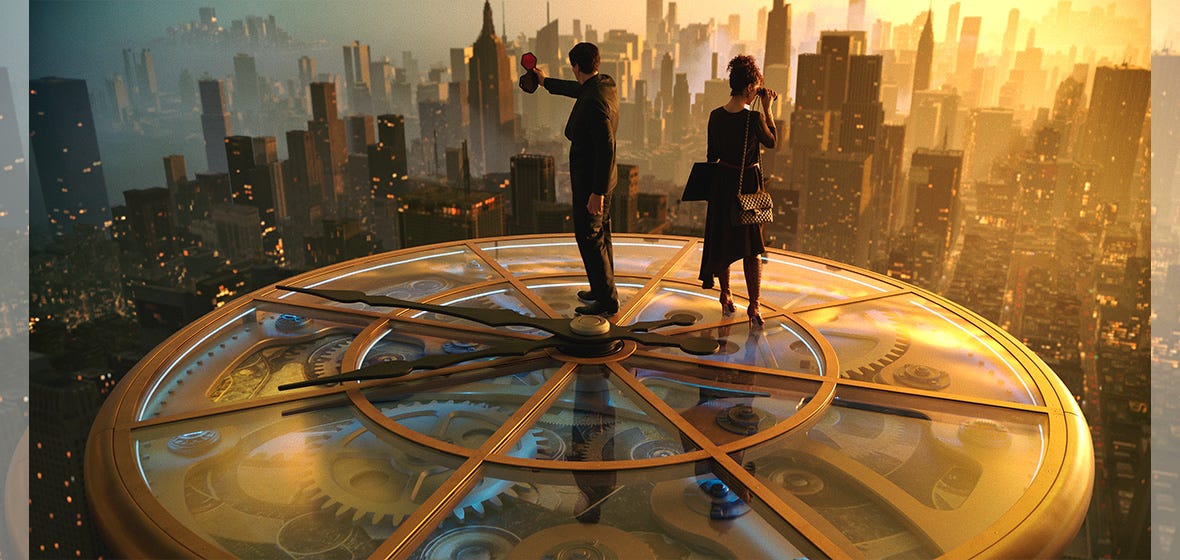Megalopolis, by Francis Ford Coppola
Megalopolis wants to cut directly to the heart of everything it does. It wants to strip away all the fluff and extraneous details that act as distractions and embellishments, so it can hug the query as tightly as possible and focus, really focus, just on the beating heart of truth that really matters.
This is why there aren’t characters in the movie. We’ve seen all these actors deliver stunning performances in other movies. They aren’t acting in this movie not because they are bad actors, but because they were told not to act. When one is acting, they are portraying human people are realistically as possible. Coppola is putting Archetypes on the screen. Caesar isn’t a person, he’s Progress personified. Coppola is tired of stories about people, he wants to pit Archetypes against each other in an idealized concept-scape.
This is why every set looks like it’s created for a Broadway stage rather than trying to portray a real space that humans inhabit. They are intentionally surreal, often low-polygon, low-texture CGI. In the 90s this was the best computers could do. In 2024 it is an environment made out of ideal platonic solids on purpose.
This would be very effective and probably even important if Coppola was wrestling with complicated concepts that had to be pared down to their most vital elements to successfully portray on screen. It could have been awe inspiring if he was unleashing primal forces to fight, interweave, and bloom through the narrative. Throwing them together to see what happens, and chronicle their victories and defeats and permutations. Unfortunately he isn’t interested in that. His message is extremely simple.
Change Can Be Scary But Growth Is Vital And Good.
This is such a simple message that it would benefit from a lot of extra embellishment, actually. Seeing this play out as a drama between humans with many conflicting desires and fears and obligations would be very interesting! Seeing it play out as a few Bad Archetypes trying to hold back a few Good Archetypes is boring, and the more pared down and platonic that portrayal is, the less there is of interest.
In Megalopolis Coppola managed to create the purest essence of the Author Tract. Perhaps this in itself is an accomplishment. Creating the platonic ideal of something, or the closest we can get to one in our base world, is a hell of a feat. As a piece of abstract art it’s worth admiring for that reason. But as a piece of cinematic art it’s just bad. I think the story behind why it failed so perfectly in so many precise aspects is the real heart of Megalopolis, and I hope some day we get that story.





The concept you pull apart here is some of my fave writing you've done
I think you got the meaning of the movie wrong. Its not pro progress, there is extensive cinnemanarrative dissonance. Cesar *says* progress is great and will lead to utopia, but what do people actually get? Escalators with sparkles on them and low-density housing for the wealthy. Immortality of course for the rich, progress is certainly good for them, but not for everyday folk. Even the contents of Cesar’s words are often very empty. They quote impressive sounding people and talk a lot and very sophisticatedly, but there’s no real content there, really no better than Pulcher, though unlike Pulcher perhaps Cesar believes what he says. Even the opening of Megalopolis at the end, beforehand a big fence is shown keeping the poors out. They don’t even get the sparkle escalators, they just loose their house & get betrayed by yet another person with power.
Of course this is a wrong model of our world, but it is what I think is meant by the movie.